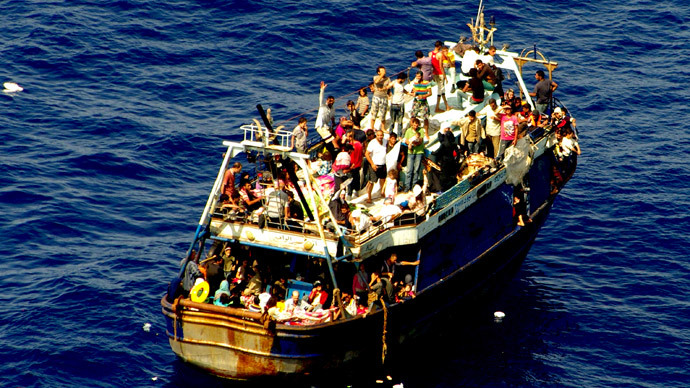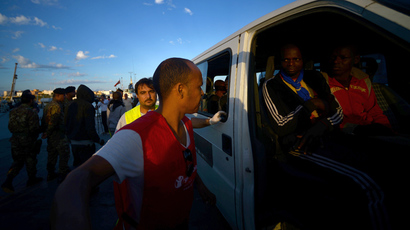3,400 dead at sea: UN slams Europe for snubbing safety over immigration barriers

The UN High Commissioner for Refugees has slammed Europe’s attitude towards over 3,400 migrants and refugees who drowned in the sea this year, suggesting that the countries care more about implementing stricter immigration policies than ensuring safety.
“Security and immigration management are concerns for any
country, but policies must be designed in a way that human lives
do not end up being collateral damage,” the UNHCR said in a
statement released Wednesday.
“This is a mistake, and precisely the wrong reaction for an
era in which record numbers of people are fleeing wars,” UN
High Commissioner for Refugees Antonio Guterres said.
More than 207,000 people have attempted the crossing to Europe
over the Mediterranean Sea this year – “almost three times
the previous known high of about 70,000 in 2011,” the UN
pointed out. The year 2011 saw a spike on account of the Libyan
civil war.
World's four deadliest sea crossings in 2014. #Protectionatseahttp://t.co/La5vJYPw0X
— UN Refugee Agency (@Refugees) December 10, 2014
Out of those attempting the Mediterranean crossing, some 3,419
have died. Large proportions of those came from Syria and
Eritrea, “accounting for almost 50 percent of the
total,” said the body.
However, in total, UNHCR has received information on 4,272
reported deaths. Conflicts in Libya, Syria, and Iraq have all
contributed to the snowballing numbers.
Although UNHCR did not name specific countries, Italy has been a
hotbed of activity, being one of the further southern points in
Europe.
Italy has managed to rescue more than 150,000 people this year –
a large number of whom have congregated around the island of
Lampedusa near Sicily.
Last week, some 17 bodies were recovered from the area; they had
died of either dehydration or hypothermia while attempting the
crossing in a rubber dinghy. Seventy-five were rescued.
READ MORE: 30 euros a day keeps migrant away? Italians offered cash for sheltering refugees
“You can't stop a person who is fleeing for their life by
deterrence, without escalating the dangers even more,” said
Guterres.
“The real root causes have to be addressed, and this means
looking at why people are fleeing, what prevents them from
seeking asylum by safer means, and what can be done to crack down
on the criminal networks that prosper from this, while at the
same time protecting their victims. It also means having proper
systems to deal with arrivals and distinguish real refugees from
those who are not.”
In November, Italy ended its year-long operation Mare Nostrum,
which saved more than 150,000 migrants making the dangerous sea
crossing from North Africa to Europe. It came as the EU started
taking responsibility for a more modest rescue operation.














